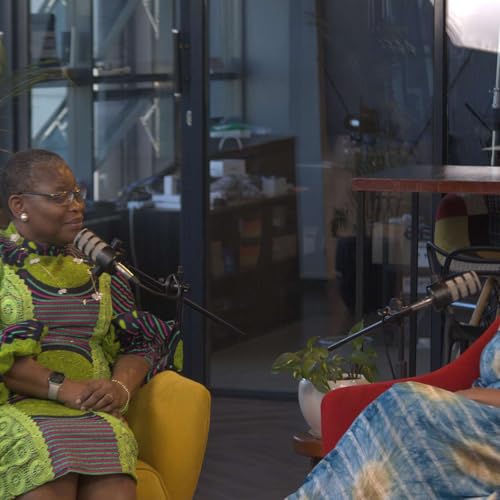In this Sixth and Final Episode of the Mawazo Ideas Podcast Season Six, scholars explore the impact of conflict on African women researchers.
The United Nations High Commissioner for Refugees (UNHCR) states that 30 million displaced people live in Africa. This is about one-third of the world’s refugee population. Higher numbers have been recorded in Ethiopia, Central African Republic, Sudan, South Sudan, The Democratic Republic of Congo (DRC), and Nigeria. Studies have shown that women migrants and refugees often bear the brunt of conflicts, experiencing extreme conditions such as human rights violations, including gender-based violence (Arawi, 2021; Kabamba, 2018).
In the DRC, Meger (2010) reports that decades of conflict expose women to sexual exploitation and that girls as young as six months are not spared from the violence being committed by armed groups and the United Nations peacekeepers. This risk of death, rape, and injury often escalates to emotional, intellectual, epistemological, ecological, and a host of attacks that interfere with knowledge production.
Join us as we explore this critical topic, what it means for the research ecosystem, as well as some of the peace-building initiatives employed by scholars and their communities to bring about lasting peace.
Further Reading
Ahmad Kaw, M., & Ahmad, S. (2014). Gender prejudice in the research world: Female researchers in a conflict zone, Kashmir. Library Review, 63(8/9), 684–699. https://doi.org/10.1108/LR-04-2013-0051
Alhaji Ali, M., Ahmad Zakuan, U. A., & Ahmad, M. (2018). The Negative Impact of Boko Haram Insurgency on Women and Children in Northern Nigeria: An Assessment. American International Journal of Social Science Research, 3, 27–33. https://doi.org/10.46281/aijssr.v3i1.141
Arawi, T. (2021). Deconstructing the Challenges of Doing Research in Conflict Zones and Areas of Protracted Conflict: The Ecology of Life in Gaza. In I. Laher (Ed.), Handbook of Healthcare in the Arab World (pp. 3379–3394). Springer International Publishing. https://doi.org/10.1007/978-3-030-36811-1_220
Kabamba, P. (2018). You Cannot Get Blood Out of a Stone: The Nexus of Neoliberalism, Violence and Slavery in the Democratic Republic of the Congo (SSRN Scholarly Paper 3147436). https://doi.org/10.2139/ssrn.3147436
Meger, S. (2010). Rape of the Congo: Understanding sexual violence in the conflict in the Democratic Republic of Congo. Journal of Contemporary African Studies, 28(2), 119. https://www.tandfonline.com/doi/abs/10.1080/02589001003736728
Mohamed, H. (2019). From the Margins to the Centre: Somali Women in Peacebuilding. In M. Keating & M. Waldman (Eds.), War and Peace in Somalia: National Grievances, Local Conflict and Al-Shabaab (p. 0). Oxford University Press. https://doi.org/10.1093/oso/9780190947910.003.0022
Nanja
Visit our website to learn more about the Mawazo Institute. Follow us on Facebook, X, Instagram, YouTube and LinkedIn.
 48 m
48 m Dec 12 20241 h y 3 m
Dec 12 20241 h y 3 m Dec 10 20241 h y 5 m
Dec 10 20241 h y 5 m 40 m
40 m 51 m
51 m Nov 21 202436 m
Nov 21 202436 m Jul 12 202446 m
Jul 12 202446 m 52 m
52 m
